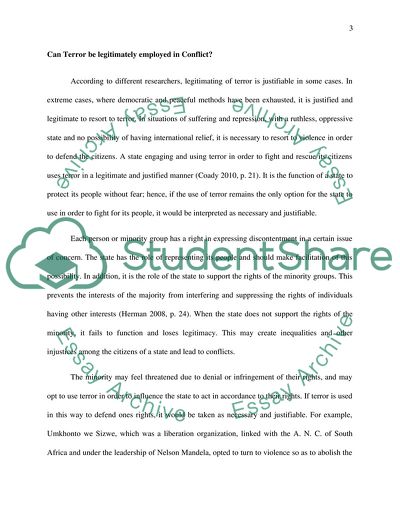Cite this document
(“Can terror ever be legitimately employed in conflict Discuss with Essay”, n.d.)
Can terror ever be legitimately employed in conflict Discuss with Essay. Retrieved from https://studentshare.org/miscellaneous/1596649-can-terror-ever-be-legitimately-employed-in-conflict-discuss-with-reference-to-examples
Can terror ever be legitimately employed in conflict Discuss with Essay. Retrieved from https://studentshare.org/miscellaneous/1596649-can-terror-ever-be-legitimately-employed-in-conflict-discuss-with-reference-to-examples
(Can Terror Ever Be Legitimately Employed in Conflict Discuss With Essay)
Can Terror Ever Be Legitimately Employed in Conflict Discuss With Essay. https://studentshare.org/miscellaneous/1596649-can-terror-ever-be-legitimately-employed-in-conflict-discuss-with-reference-to-examples.
Can Terror Ever Be Legitimately Employed in Conflict Discuss With Essay. https://studentshare.org/miscellaneous/1596649-can-terror-ever-be-legitimately-employed-in-conflict-discuss-with-reference-to-examples.
“Can Terror Ever Be Legitimately Employed in Conflict Discuss With Essay”, n.d. https://studentshare.org/miscellaneous/1596649-can-terror-ever-be-legitimately-employed-in-conflict-discuss-with-reference-to-examples.


